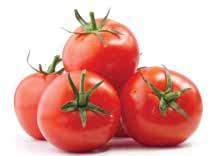YOUR LEVY AT WORK
PROGRAMME THRILLS STUDENTS Words by Alex Tomkins
Fourteen tertiary students from Massey, Lincoln, and Victoria Universities completed a two-week horticulture expedition around New Zealand late last year. The group comprised students from a range of disciplines including Horticultural Science, AgriBusiness, Food Marketing, Food Technology, and Engineering. The Aotearoa Horticulture Immersion Programme (AHIP) was run by the Massey Business School and NZ Apples & Pears, with support from AGMARDT (Agricultural & Marketing Research & Development Trust), Zespri and Horticulture New Zealand. Students were exposed to the different value chains, various business models and potential career opportunities. The trip enabled students to grasp the sector’s future challenges and opportunities. Students experienced the entire horticulture value chain from plant breeding to the end consumer. The group saw first-hand the potential role of technology, engineering and data management to improve horticulture production efficiency and environmental sustainability, and to provide a longer-term solution for labour challenges. Throughout the trip, the bus was used as a moving classroom, allowing students to reflect, debate, and critically analyse their learnings and insights from visits. Students were challenged to think about their observations in terms of opportunities and implications for the future of horticulture.
8
NZGROWER : MARCH 2021
The trip started in Christchurch and delved straight into the vegetable seed industry while also looking at precision horticulture. The group made their way up the South Island visiting Kaikōura, Marlborough and Nelson where they were exposed to diversified farming systems, viticulture, hops, boysenberries, and Māori AgriBusiness. The second week was spent in the North Island, focusing on the kiwifruit industry, the apples sector, and agri-tech. The programme ended in the capital with the students presenting their insights to the Ministry for Primary Industries (MPI) and HortNZ. Major observations and insights from the trip include: • Two-speed economy model Within the horticulture industry, uneven growth rates within sectors have resulted in a two-speed economy. This is seen through the rapid growth of large corporate land management compared to smaller individual growers. Also, product groups primarily selling to export markets that are noncommodity and high returning are growing significantly faster than commodity horticultural products sold on the domestic market. • Volume to value to values Historically within New Zealand’s primary industries and horticulture sector, there has been a shift from volume to value. Recent transitions have seen a shift to values-based business models, with importance placed on longevity and prosperity for future generations.
• Finite to infinite mindset Students saw this in businesses where Kaitiakitanga and Manakitanga – showing respect for people and the land – were core values and reflected throughout the business and their story. Within the horticulture sector, there is an increasing shift in business values from a finite to an infinite mindset which is focused on long-term prosperity. • Consumer driven, Intellectual Property (IP) controlled value chains During the AHIP study trip, students observed the consumer driven nature of horticulture with growing IP and Plant Variety Rights (PVR) controlled value chains, which bring significant value to the sector. • Data transparency and open innovation Going forward, increasing collaboration within innovation and data transparency will allow for the technology and automation to improve efficiency and solve industry wide problems. • The missing middle of leadership talent Over the next decade, a large proportion of industry managers and leaders will begin to retire. Therefore, developing future leaders and talent within horticulture to ensure knowledge is passed on needs to be an industry priority.



























